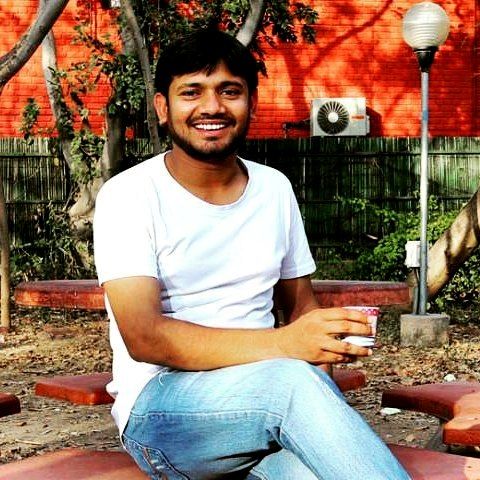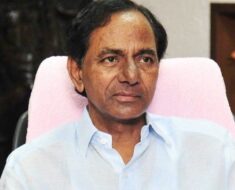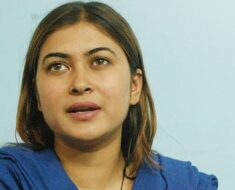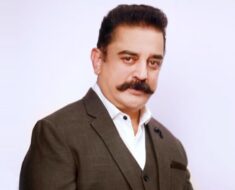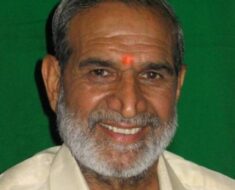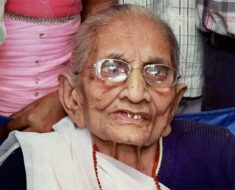Kanhaiya Kumar, a prominent Indian politician and former Jawaharlal Nehru University Students’ Union (JNUSU) president, rose to national attention following a 2016 controversy. Accusations of anti-national activities led to charges of sedition and criminal conspiracy, ultimately dismissed due to lack of evidence.
Wiki/Biography
Born on Tuesday, January 13, 1987 (age 37 as of 2024), in Bihat village, Begusarai, Bihar, Kanhaiya Kumar’s zodiac sign is Capricorn. His educational journey encompassed Madhya Vidyalaya, RKC High School, and Ram Ratan Singh College in Bihar. He later earned a Bachelor’s degree in Geography from Patna’s College of Commerce, an MA in Sociology from Nalanda Open University, Patna, and a Doctorate in African Studies from Jawaharlal Nehru University, New Delhi. He consistently excelled academically, even topping the JNU entrance exams.
Physical Appearance
- Height (approx.): 5′ 6″
- Weight (approx.): 65 kg
- Eye Color: Black
- Hair Color: Black
Family
Kanhaiya Kumar hails from an upper-caste Bhumihar family. His father, Jaishankar Singh, a farmer, passed away on November 4, 2016. His mother, Meena Devi, an Anganwadi worker, supported his election campaigns with a tiffin service run alongside his sister, Juhi. He also has two brothers: Manikant Singh, a factory supervisor in Assam, and Prince Kumar, a student.
Career
Kanhaiya Kumar’s involvement with the All India Students’ Federation (AISF) began in 2004. After joining Jawaharlal Nehru University (JNU) in 2011, he actively participated in student politics. In September 2015, he made history as the first AISF member elected as JNUSU President. The JNU controversy catapulted him into the national spotlight, with many predicting a future in mainstream politics. Following his release from jail (due to lack of evidence and a tampered video), it was revealed that outsiders, not JNU students, were responsible for the anti-national slogans.
Elected to the Communist Party of India’s (CPI) National Council in April 2018, he contested the 2019 General Elections in Begusarai, Bihar, but lost to Giriraj Singh. He later joined the Indian National Congress in September 2021 and contested the 2024 Lok Sabha elections from North East Delhi, again unsuccessfully.
Controversies
The February 12, 2016, arrest of Kanhaiya Kumar and two other students on charges of sedition (IPC 124-A) and criminal conspiracy (IPC 120-B) stemmed from a video showing anti-national slogans being chanted at a JNU event. The video also depicted opposition to Afzal Guru’s capital punishment. The subsequent physical assault on Kanhaiya Kumar by lawyers within the Patiala House Court during a hearing on February 15, 2016, initially appeared random but was later exposed as a planned attack. Following his release, he faced numerous death threats.
Further incidents included an assault by a Ghaziabad man on March 10, 2016, and multiple attempted attacks during a protest outside Parliament on March 15, 2016, all highlighting the intense polarization surrounding the JNU controversy.
Facts
Kanhaiya Kumar’s interests include theatre, and he was a member of the Indian People’s Theatre Association (IPTA). His friends and family consistently described him as calm and peace-loving, emphasizing his belief in his innocence throughout the ordeal. His father’s death in November 2016, shortly after his arrest, added another layer of hardship to the situation. His mother’s modest income as an Anganwadi worker underscored the family’s reliance on her and Juhi’s tiffin service to support Kanhaiya’s political endeavors. His post-release address to JNU students clarified his stance on freedom, emphasizing his desire for freedom *within* India, not from it.
Educational Timeline
| Institution | Degree | Subject |
|---|---|---|
| Madhya Vidyalaya, RKC High School, Ram Ratan Singh College | Schooling | N/A |
| College of Commerce, Patna | Bachelor’s | Geography |
| Nalanda Open University, Patna | Master’s | Sociology |
| Jawaharlal Nehru University, New Delhi | Doctorate | African Studies |
“`

